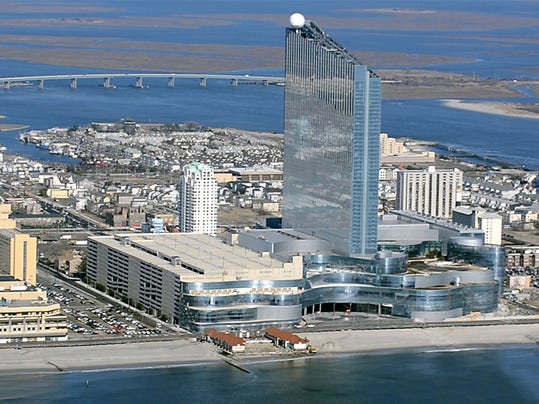While not conceding the five-year turnaround plan for Atlantic City has fallen short of expectations, the cautious support expressed by Gov. Chris Christie and Senate President Steve Sweeney for expanding casino gaming is an acknowledgment of doubts about the plan’s chances for success.
Their willingness to discuss permitting casinos in North Jersey follows a series of devastating economic blows to Atlantic City — the closing of the Atlantic Club, the second bankruptcy and potential closing of the Revel Casino Hotel, and the September shutdown of Showboat and Trump Plaza if buyers aren’t found.
For the governor and Sweeney, any overt move toward casino development outside the city would have been unthinkable three years ago. Both insisted that Atlantic City deserved the opportunity to rebound under the five-year plan and that in-state competition would undercut the effort.
Their willingness to consider a constitutional amendment to remove the restriction confining gaming to Atlantic City raised the hopes of those who have urged expansion, most often citing the Meadowlands complex as an ideal casino location.
Within days of their comments, a proposal was floated for a multibillion-dollar casino-centered entertainment complex near Liberty State Park in Jersey City.
Sweeney made it clear that November 2015 is the earliest opportunity for a referendum and the interim would be used to deal with the myriad details involved, primarily his view that Atlantic City should benefit somehow from casino operations elsewhere.
While conventional wisdom has it that a referendum would win approval, it will require a North-South political alliance to see it through. Sweeney will insist on safeguards to prevent damaging the South Jersey economy, while North Jersey interests will center on proposed locations and how tax revenue from gambling operations will be allocated in their region.
When the state’s five-year plan was enacted over fierce local opposition, it created an entertainment district to develop, implement and oversee Atlantic City’s attempt at a comeback. Its mission included addressing quality-of-life issues — traffic and public safety concerns among them — and attracting capital investment.
It was to help resolve the lingering question of whether the city wanted to become a family resort that happened to have casino gambling or a gambling resort that happened to have a beach and a boardwalk.
The state’s involvement was a response to the industry’s steady decline as revenues fell year after year, a downward slide accelerated by the impending closings.
Casinos were the economic engine for virtually all of South Jersey, once employing 48,000 people, but since fallen to approximately 25,000, while annual revenues have tumbled from more than $5 billion to less than $3 billion.
Internet gambling has been disappointing, and the outlook for the courts or Congress to legalize sports betting remains dim.
Atlantic City Mayor Don Guardian has taken a realistic approach, accepting the pain of closings and job losses as a necessary transition period during which the city and the industry can find the appropriate balance and thrive again.
Those who warned the city had become “over-casinoed” were, indeed, correct. The number of operating casinos could not be profitably sustained and weak performers would wither.
While the national economic downturn contributed mightily to the industry’s decline, the competition from Pennsylvania and New York was overwhelming.
In a few years, Pennsylvania supplanted Atlantic City as the second most visited gambling destination in the country, behind Las Vegas. With its two east and west casino regions, Pennsylvania is not a market in the same sense as Atlantic City, but Philadelphia’s proximity has siphoned off a part of Atlantic City’s customer base.
Gamblers in New York and North Jersey counties can head west on Route 80 for an hour to Pocono Mountains casino resorts, while others headed in the same direction on Route 78 can gamble at the Bethlehem, Pa., casino.
For Philadelphia gamblers, gaming was a subway ride away or a quick hop north into lower Bucks County. Atlantic City’s patrons now had other, more convenient options.
Christie and Sweeney made it clear they’ve not abandoned the five-year plan and remain committed to restoring to Atlantic City some of the magic it once enjoyed while regaining its place as an economic and employment power.
They are aware, though, of the competitive winds that have reduced Atlantic City’s once bright candle flame to a flicker. The prospect of once-glittering hotels and crowded gaming halls shuttered and abandoned on the boardwalk is something neither wants to contemplate.
Finding a path to satisfy the differing interests involved will provide a test for them both.
Carl Golden is a senior contributing analyst with the William J. Hughes Center for Public Policy at Richard Stockton College of New Jersey.
Read or Share this story: http://on.app.com/1mBncwu
| < Prev | Next > |
|---|







 Copyright © 2025 ToCasino.net Online Casino. All Rights Reserved. Designed by
Copyright © 2025 ToCasino.net Online Casino. All Rights Reserved. Designed by